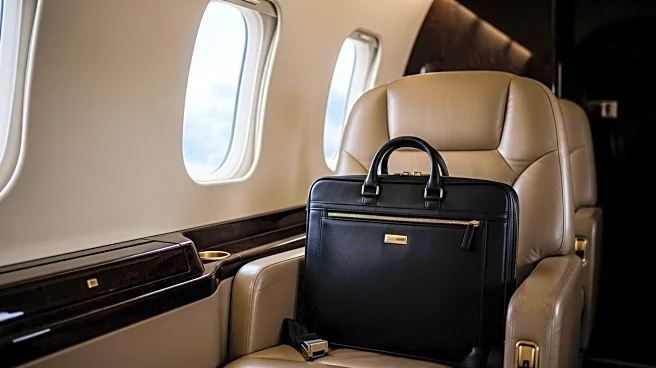What's Happening?
CNN correspondent Kaitlan Collins has disclosed that staffers are apprehensive about traveling with President Trump due to his minimal sleep requirements. During a podcast appearance, Collins shared insights into Trump's travel habits, noting that he often remains awake and engages with staff during flights, particularly on long trips such as those to Southeast Asia. This behavior reportedly leads to increased workloads for staff, who are expected to be available for discussions at all hours. Collins highlighted that Trump's ability to function on little sleep is well-known among those who work closely with him, creating a challenging environment for staffers who accompany him on Air Force One.
Why It's Important?
The revelation about President Trump's travel routine underscores the demanding nature of working in close proximity to high-level political figures. Staffers' concerns about sleep deprivation highlight the intense pressures faced by those in political roles, potentially affecting their performance and well-being. This situation may also reflect broader issues within political staffing, where the expectations and demands placed on employees can lead to burnout and decreased job satisfaction. Understanding these dynamics is crucial for evaluating the working conditions within political environments and considering potential reforms to improve staff welfare.
What's Next?
As President Trump prepares for upcoming international trips, staffers may need to adapt their strategies to manage the challenges posed by his travel habits. This could involve implementing measures to ensure adequate rest and support for those accompanying him. Additionally, discussions around improving working conditions for political staff may gain traction, potentially leading to policy changes that address the demands of such roles. Stakeholders, including political leaders and human resource experts, may explore solutions to balance the need for high-level engagement with the well-being of staff.
Beyond the Headlines
The issue of sleep deprivation among political staffers raises ethical considerations regarding workplace practices and employee rights. It prompts a broader conversation about the expectations placed on individuals in high-pressure roles and the potential impact on their health and personal lives. This situation may also influence cultural perceptions of leadership, where the ability to function on minimal sleep is often valorized, potentially perpetuating unrealistic standards for productivity and commitment.









